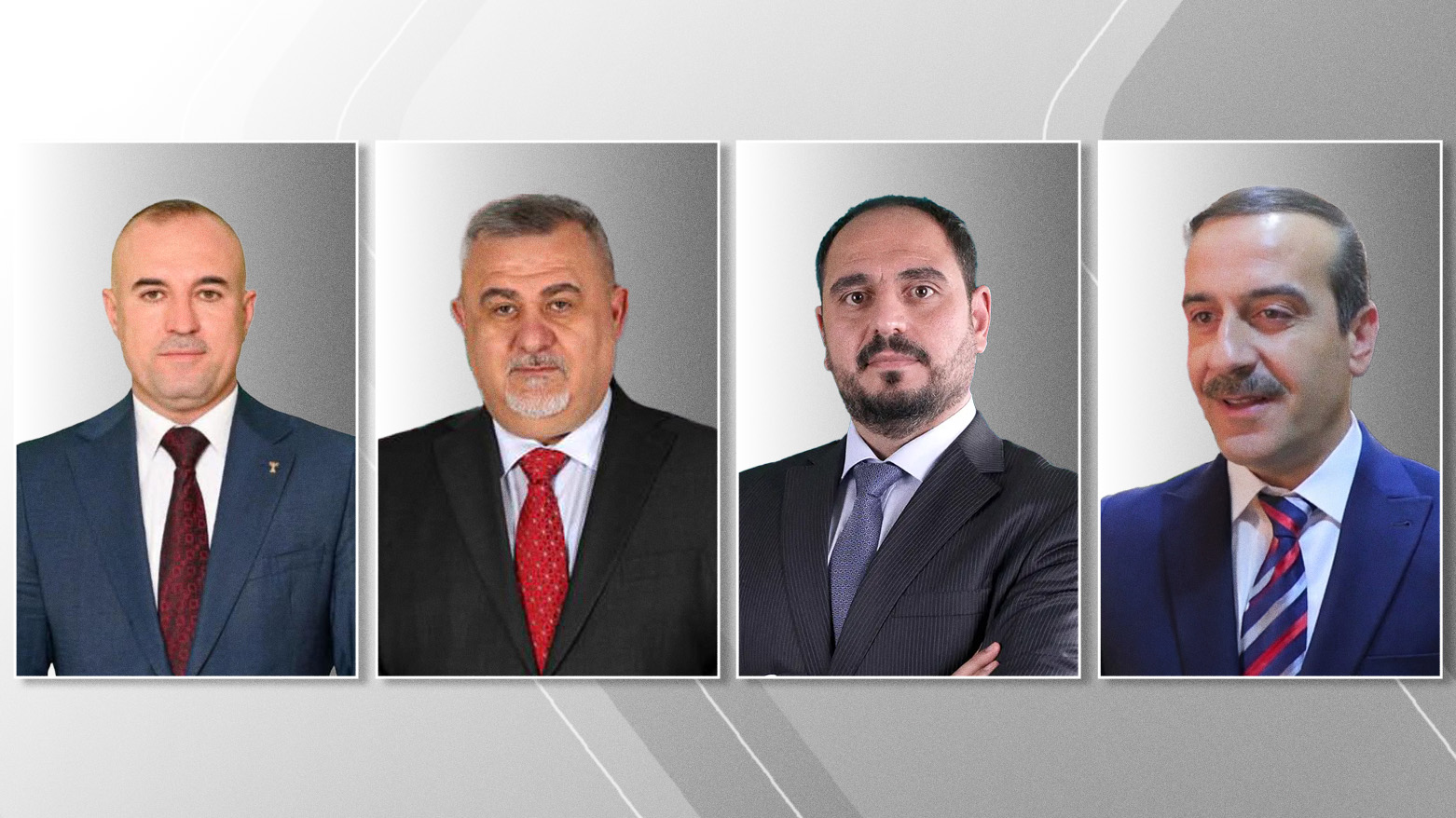Know the Quota Candidates Who Lead Nationally Following Iraq’s Special Vote
Among the quota candidates, four representatives of the Christian and Yazidi communities secured the highest number of votes in Iraq’s special election, which saw an extraordinary 98% voter turnout in the Kurdistan Region.

ERBIL (Kurdistan24) – In a remarkable and potentially significant early trend emerging from Iraq's special parliamentary vote, four candidates competing for seats reserved for the country's ethnic and religious communities have reportedly secured the highest individual vote counts in comparison to the other quota candidates, a powerful testament to the organized and enthusiastic participation of Christian and Yazidi members of the security forces.
This preliminary result comes on the heels of an exceptionally successful special election on Sunday, which was marked by a staggering 98% turnout among security forces in the Kurdistan Region and an impressive 82.42% nationwide, setting a high-energy precedent as the country gears up for its pivotal general election on Tuesday.
According to the latest preliminary results from Sunday's special voting, four candidates running for quota seats—three Christians and one Yazidi—emerged as the top vote-getters among the more than one million security personnel and displaced persons who cast their ballots.
The leading candidates were identified as Sami Oshana Gorgis with 15,218 votes, Kildo Ramzi Oghanna with 14,346 votes, Imad Youkhana Yako with 9,844 votes, and Khalid Sido Aziz Khalidi with 3,256 votes.
While these are not the final results and will be integrated with the general vote, their strong showing in this first phase highlights the disciplined and motivated turnout within their respective communities, particularly within the security apparatus.
This striking performance by the quota candidates was part of a broader story of overwhelming participation in the Kurdistan Region, which recorded some of the highest turnout rates in the entire country.
The Iraqi Independent High Electoral Commission (IHEC) confirmed the exceptional figures, with Duhok province leading the nation at 98.19%, followed closely by Sulaimani at 98.16% and Erbil at 97.92%. These numbers, which translate into a combined 98% turnout across the Region, reflect a massive and coordinated mobilization of the Peshmerga, police, and other security personnel.
Nabard Omar, the head of the Kurdistan Region Electoral Board of IHEC, provided Kurdistan24 with the raw numbers behind these percentages, detailing that 109,508 security personnel voted in Erbil, 106,350 in Sulaimani, and 55,411 in Duhok.
The turnout among the internally displaced persons (IDPs) hosted in the Kurdistan Region was also notable, with 77% of eligible IDPs in Duhok (totaling 20,000 individuals) and 71% in Erbil (391 voters) casting their ballots.
This high level of engagement from the Region's special voters, including its diverse ethnic and religious components, sends a powerful signal of civic commitment ahead of the general election.
The success of Sunday's vote was not just in the numbers, but in the smooth and secure execution of the process.
Officials confirmed that the day proceeded with only minor and quickly resolved technical glitches, a vast improvement on past elections that were often marred by technological failures and delays.
This flawless execution, combined with the visible enthusiasm of the voters, has created a strong foundation of confidence as the nation prepares for the main event.
Now, all eyes are on Tuesday, November 11, when the rest of the nation's electorate will head to the polls. The scale of the general election is immense. According to IHEC, a total of 20 million, 404 thousand, and 291 people are eligible to vote.
They will cast their ballots in 8,703 centers, which house a total of 39,285 polling stations. The competition for power is fierce, with more than 7,743 candidates vying to win one of the 329 seats in the Iraqi Council of Representatives.
The strong early showing of the quota candidates serves as a poignant reminder of the importance of the seats reserved for Iraq's vulnerable ethnic and religious components. The Iraqi electoral system allocates a specific number of seats to ensure the representation of Christians, Yazidis, Sabean-Mandaeans, and Shabaks, a mechanism designed to safeguard their political voice in the nation's diverse but often fractious parliament.
The high turnout and organized voting by these communities within the security forces underscore their determination to make that voice heard and to elect strong representatives who can advocate for their rights and security in Baghdad.
The preliminary results from the special vote, while not determinative of the final outcome, have added a fascinating new dimension to the electoral landscape.
They have demonstrated the power of a motivated and organized electorate and have placed the representatives of Iraq's resilient ethnic and religious communities at the forefront of the early political narrative.
As the country counts down to Tuesday, the question now is whether the high-energy and disciplined participation seen on Sunday will be replicated by the general public, and how the votes of over 20 million citizens will shape the final composition of a parliament tasked with navigating the immense challenges and opportunities that lie ahead for Iraq and the Kurdistan Region.